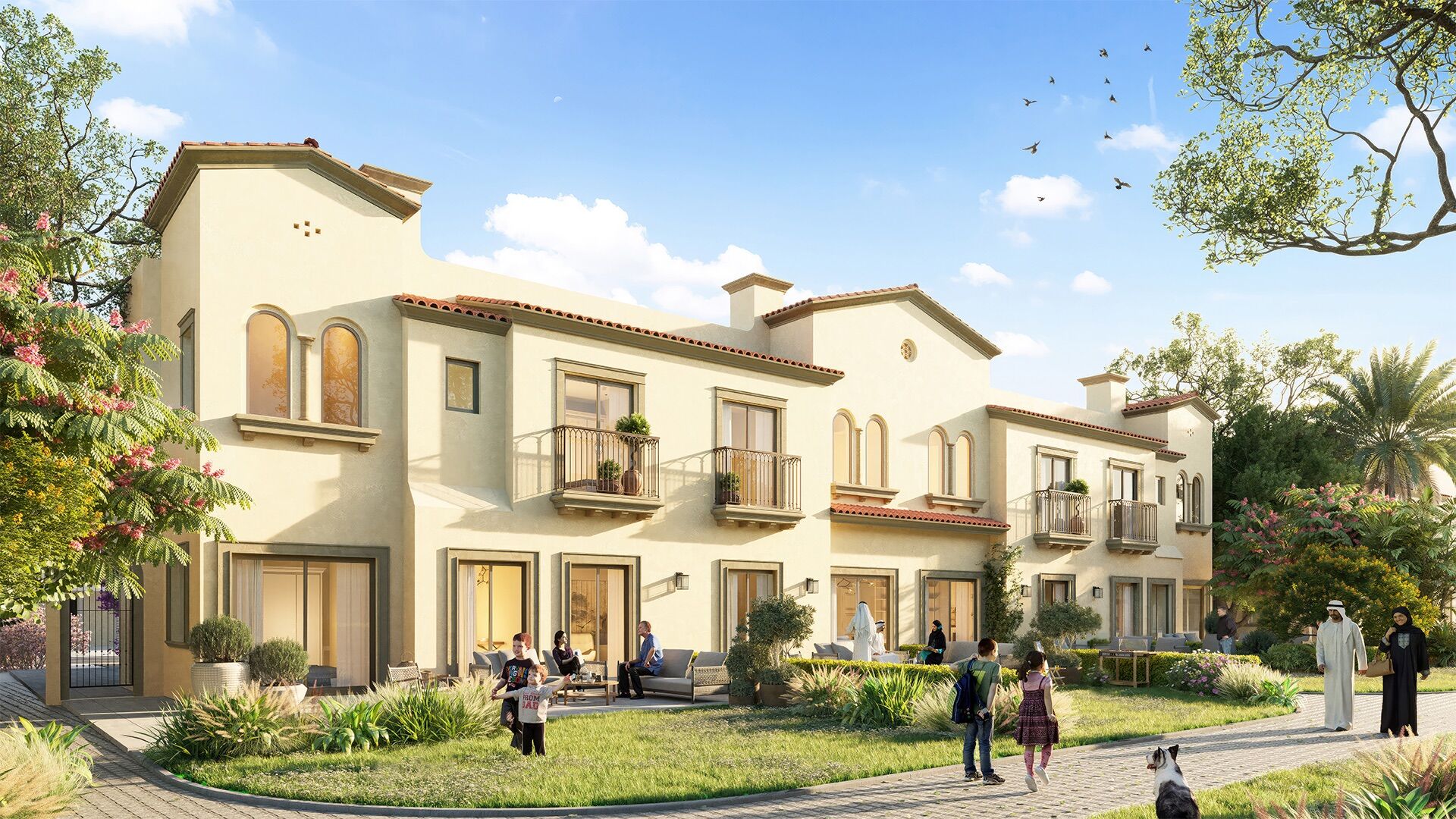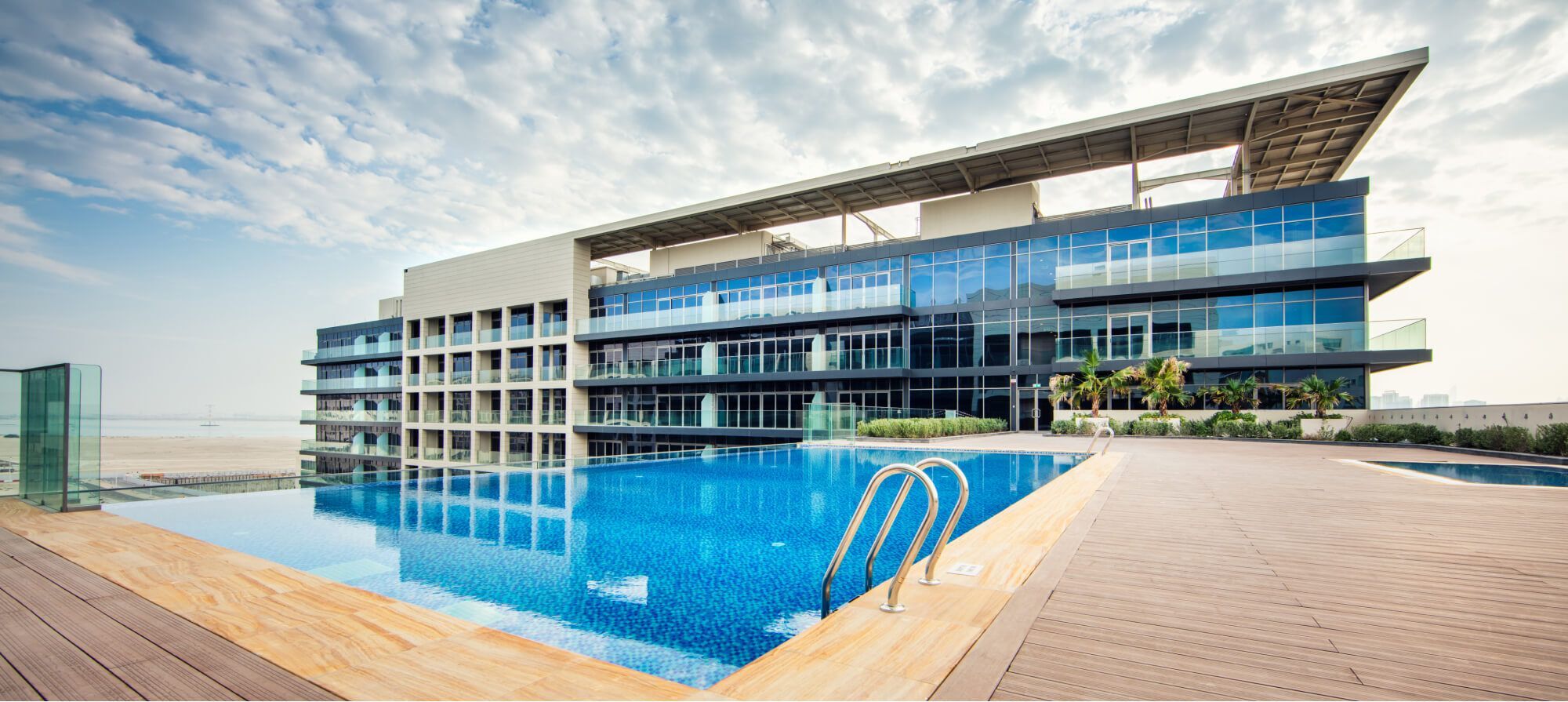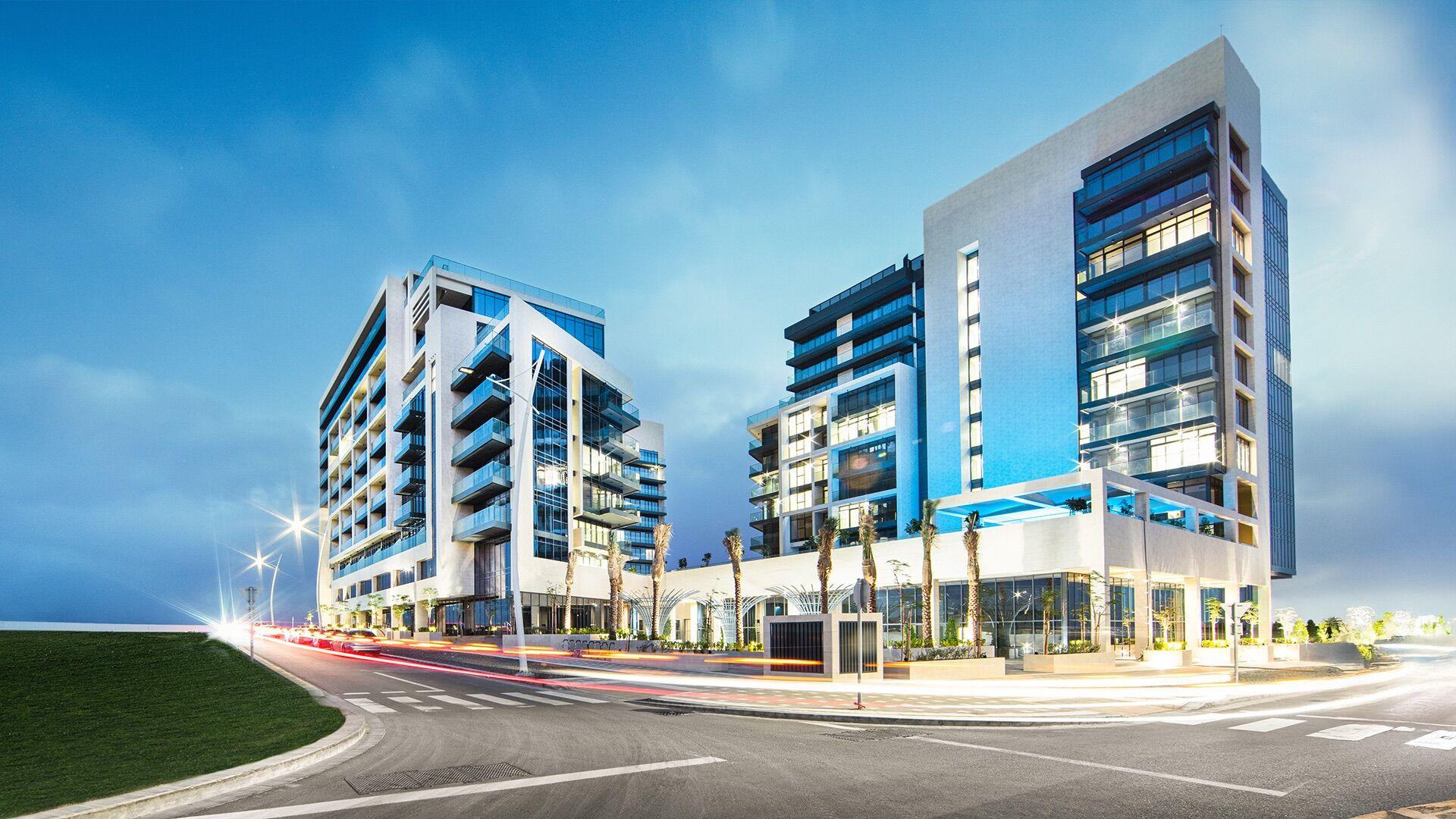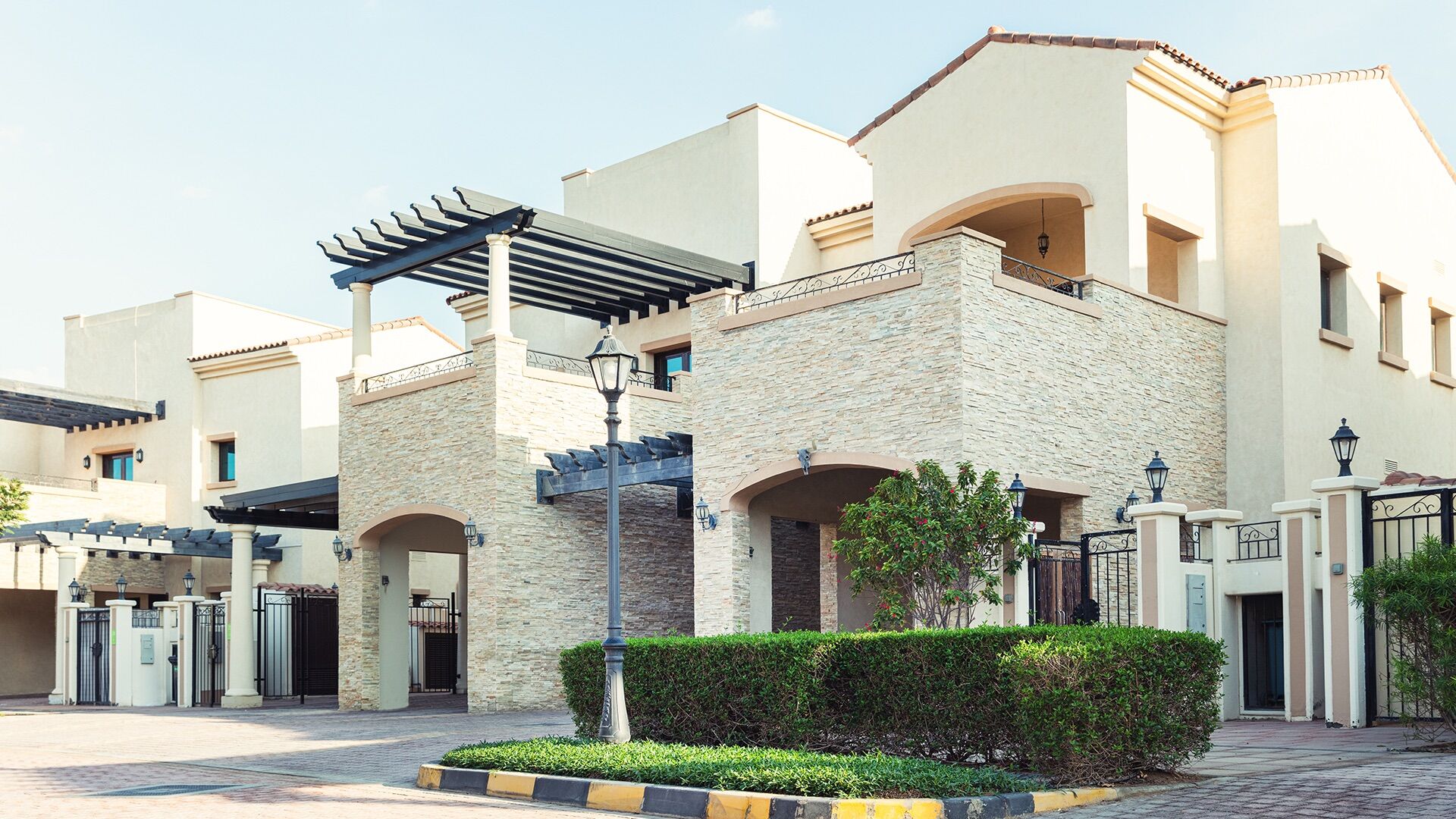Plan Your Property Investment Now with Bloom’s Mortgage Calculator
What Is a Mortgage Calculator & How to Use it
An online mortgage calculator is a valuable tool for potential property buyers who want a rough estimate of their monthly payments when borrowing a certain amount. It allows you to explore different scenarios by simply adjusting the loan amount, interest rate, and term length. This can help you assess whether a particular property fits within your budget and provides the information you need to plan your investment wisely.
How to Use Bloom’s Online Mortgage Calculator
- Enter the property value (price of the home).
- Choose your loan amount or down payment.
- Select the interest rate (you can use an estimated rate or a rate provided by your bank).
- Enter the loan tenure (number of years you want to take the loan for).
- Click "Calculate" to see your estimated monthly payments.
The calculator will give you an idea of your monthly repayment amount. If you would like to explore different scenarios, simply change the values and hit “Calculate” again.
How Mortgage Loan Calculators Can Help You
Mortgage calculators help home buyers and property investors plan their finances better by offering three key insights:
1. A Clear Budget
Understanding your estimated monthly repayments can help you decide how much you can afford to invest in your dream property without stretching your finances too thin and putting yourself at risk.
Monthly repayments are typically the largest expense for homeowners, so understanding them ensures you can budget effectively for other costs like utilities, maintenance, and everyday expenses.
2. Ideal Loan Options
It gives you the opportunity to easily compare and evaluate different loan offers (e.g., varying interest rates or loan terms). This information can help you decide the most affordable and suitable loan option that aligns with your financial plans or goals.
The length of the loan (e.g., 15 years vs. 30 years) can significantly impact your monthly payments. A shorter term means higher monthly payments but less interest paid over time, while a longer term lowers monthly payments but costs more in the long run due to interest.
3. How to Plan for the Future
Knowing what your payments will be in advance can help you budget for your future and set aside funds for your monthly mortgage payments, additional investments, living expenses, holidays, and other life events.
Interest rates play a major role in the overall cost of your mortgage. A small difference in the rate can lead to big differences in the total repayment amount. For example, even a 0.5% difference in the interest rate could add up to thousands of dirhams over the life of the loan.
Common Mistakes to Avoid When Using a Mortgage Calculator in the UAE
1. Overestimating Your Budget
When you use a mortgage calculator, you're usually only seeing the principal and interest portion of the mortgage. It’s easy to get carried away when you see an estimate that feels comfortable, but there’s more to your home purchase than just the loan repayment. Homeownership comes with plenty of additional costs, that includes:
- Utilities: Electricity, water, and cooling can add up quickly, especially in larger homes. Summers in the UAE can be quite harsh, and the energy bills reflect that.
- Initial Fees: These can vary depending on where you live in the UAE. Be prepared to spend on land department fees (4% of property value), registration fees, agent commission (2% of property value), and mortgage fees, among other things.
- Annual Service Charge: If you’re buying property in a community, you will be required to pay an annual service charge or maintenance fee for the upkeep of common areas and amenities. This is usually calculated per square foot, and the rate varies depending on the location and how exclusive your property is.
When using a home mortgage calculator in the UAE, it is important to factor these additional costs in to get a more accurate estimate of what your budget is and equip yourself with the information you need for realistic financial planning.
2. Not Considering Loan Terms and Conditions
Make sure you're paying attention to the loan terms and conditions when using a mortgage calculator. These can dramatically affect your monthly payments and overall financial picture. Two things to watch out for are:
- Interest Rates: Even small fluctuations in the interest rate can have a big impact on the total amount you’ll pay over the life of the loan. For instance, a higher rate means more money spent on interest, making your monthly payments higher.
- Loan-to-Value (LTV) Ratio: This is the ratio of your loan amount to the appraised value of the property. A higher LTV ratio (i.e., borrowing more compared to the value of the home) usually means higher interest rates, and you may be required to pay for Private Mortgage Insurance (PMI), which adds extra costs.
It’s important to be aware of these terms when using a mortgage calculator to get a more accurate and realistic estimate of what your actual repayments will be.
3. Miscalculating Payment Frequencies
Mortgage calculators often default to monthly payments, but different payment schedules can affect your overall budget:
- Monthly Payments: This is the most common and standard option, where payments are made once per month.
- Quarterly or Annual Payments: Some lenders might offer options for quarterly or annual payments, and this can affect how much you pay at once. If you choose one of these options, your monthly cash flow might look different from what you're used to.
Be sure to understand the frequency of your payments when using an online mortgage calculator, as choosing a different payment frequency could impact your monthly or yearly budget.
Factors That Influence Mortgage Calculation in the UAE
If this is your first time buying property in the UAE, there are a couple of key factors to apprise yourself of before taking a mortgage so you know exactly what you are signing up for. This includes:
1. Interest Rates
Interest rates are one of the most important aspects that determine how much you’ll pay each month for your mortgage. In the UAE, interest rates are influenced by a variety of factors, with the central bank's base rate playing a major role.
The Influence of the UAE Central Bank’s Rates on Mortgage Interest:
The UAE Central Bank sets the base interest rates, which directly impact the rates lenders offer to borrowers. If the central bank raises its rates, mortgage interest rates typically go up as well, making your monthly repayments higher. Conversely, if the central bank lowers its rates, mortgage rates usually drop, potentially lowering your monthly payments.
Fixed vs. Variable Rates and Their Impact on Repayments:
- Fixed-Rate Mortgages: A fixed-rate mortgage means your interest rate stays the same for a certain period - usually 3 to 5 years. This provides stability and predictability by ensuring your monthly repayments won’t change during this time. However, during the initial period, fixed rates are often higher compared to variable rates.
- Variable (or Floating) Rate Mortgages: A variable rate can change over time, and is usually tied to the UAE Central Bank’s base rate or another benchmark. While variable rates may start lower than fixed rates, your monthly repayments could rise if interest rates go up. However, if rates go down, you may benefit from lower payments.
Choosing between fixed and variable rates depends on your personal preference. If you want certainty and are risk-averse, a fixed rate might be better for you. If you can handle potential fluctuations and are hoping for a lower initial payment, a variable rate might be the way to go.
2. Down Payment
A down payment is the amount you need to pay upfront when purchasing a property. The larger the down payment, the less you need to borrow. This directly affects your loan amount and monthly repayments.
For example, if you buy a property for AED 1 million and make a down payment of 20%, you will borrow AED 800,000. If you make a larger down payment, say 30%, you would only need to borrow AED 700,000. This would reduce your monthly payments because you're borrowing less. This could save you money in the long run due to less interest accruing on a smaller loan.
In the UAE, the down payment requirements can vary based on your residency status and the type of property you're buying.
Down Payments for UAE Residents vs Non-Residents:
- For UAE residents, the typical down payment is usually 20% of the property’s value for a primary residence.
- For non-residents, the down payment is often higher, usually around 25% to 30% for residential properties.
This higher down payment for non-residents reflects the increased risk lenders associate with foreign buyers, as non-residents might have less financial stability or local credit history.
3. Loan Tenure
The loan tenure, or the length of time you have to repay your mortgage, is another important factor to consider. Before finalizing the type of loan tenure you want, it is important to have a clear understanding of your budget.
Impact of Longer vs. Shorter Loan Terms on Monthly Payments:
Long-Term Mortgage Loan
A long-term mortgage describes a loan period that’s five years or more. In the UAE, residents can take a mortgage for a maximum tenure of 25 years, and non-residents for 15 years. With a longer loan term, your monthly payments will be lower because you’re spreading the cost of the loan over more years. This can be a relief for those with a smaller monthly budget. However, you’ll end up paying higher total interest over time due to the longer loan life.
Short-Term Mortgage Loan
Mortgages that need to be repaid in less than 5 years are known as short-term mortgage loans. Shorter terms mean higher monthly payments since you’re paying off the loan faster, but you’ll pay less in interest overall. This is because the lender has less time to accrue interest on the loan. This option works for those who can afford a heftier monthly payment, especially in the first few years.
4. Property Valuation
A property valuation is an assessment of the property’s current market value, and is usually carried out by a professional appraiser.
Lenders use the property valuation to determine how much they are willing to lend. This is because the value of the property directly affects the Loan-to-Value (LTV) ratio, which is the ratio of the loan amount to the property’s value. In the UAE, banks typically lend up to 80% of the property’s value for residents and 70-75% for non-residents. This means if the property is valued at AED 1 million, a resident might be able to borrow up to AED 800,000, while a non-resident might only be able to borrow AED 700,000 to AED 750,000.
If the property is valued lower than you expect, it can impact how much you can borrow, and in some cases, you may need to adjust your down payment or look for a less expensive property.
Mortgage Eligibility Criteria in the UAE
Whether you're a UAE national, an expat, or a non-resident, there are specific eligibility criteria that determine whether or not you can secure a loan. Lenders assess several factors to ensure that you can comfortably repay the loan, which differs depending on which buyer category you belong to. Here are some essential things to know:
For UAE Nationals
To qualify for a mortgage as a UAE national, you must meet the following criteria:
- Proof of Nationality: You need to present a valid UAE passport and Emirates ID that proves your nationality.
- Age: You must be at least 21 years of age to apply. As of 2019, there is no mandatory age limit, however, most banks still follow the previous conditions set by the UAE Central Bank, and require loan payments to be completed by 65 years of age for salaried individuals, and 70 years of age for self-employed.
- Income: A minimum monthly income of AED 10,000 is required.
- Employment: You must have stable employment with a reliable company. If self-employed, you need to submit proof of stable income and business track record for at least two years.
- Proof of Employment: You’ll need to provide bank statements and salary certificates that confirm your employment status.
- Credit History: A good credit history is essential to show financial responsibility.
- Down Payment: Typically, a 20% down payment of the property’s value is required.
For Expats
To qualify for a mortgage in the UAE as an expat, you generally need to meet the following criteria:
- UAE Residency: You must be a resident of the UAE and provide documents to prove this.
- Age: Applicants are required to be at least 21 years old to apply. Most mortgage lenders usually also require the loan to be fully repaid by the time you are 65 years old if you are a salaried employee, or 70 years old if self-employed. However, since 2019, the upper age limit is no longer enforced by the UAE Central Bank and is left open to lenders to decide.
- Employment: Salaried employees must have been employed at their current company for at least 6 months. Self-employed business owners must have a clean credit history. Documentation to support the same will be required.
- Income: A minimum monthly income of AED 15,000 is generally required.
- Credit History: A good credit score (typically 650 or higher) is essential.
- Down Payment: Expect to pay a 20% down payment of the property’s value.
Different banks may have their own terms, so it's worth comparing lenders before you commit to a mortgage plan or provider.
For Non-Residents
If you are a non-resident looking to buy property in the UAE, here’s what you need to know about securing a mortgage:
- Citizenship: Some banks may require you to be from a country that is on their approved list for non-resident home loans.
- Employment: You must be either a salaried employee or self-employed to apply and be able to submit proof of income.
- Age: Banks typically have age restrictions that include a minimum and maximum age to apply. Be sure to check whether you qualify with your bank.
- Income: You need to meet the bank’s minimum monthly income requirement, which may differ. Most lenders only accept applicants who have a monthly income of at least 15,000 - 20,000 AED after tax deductions.
- Property Approval: Some banks only finance properties from approved developers or projects, so ensure your property qualifies before applying.
- Documentation: Valid passport for ID proof, bank statements for the last 3-6 months showing proof of funds, tax returns (if applicable), salary certificates or payslips (if you're salaried), trade license and audited financial statements (if you're self-employed), and details of any existing loans among others.
Are You Ready to Own a Bloom Property?
With Bloom Holding, you have the choice of investing in some of the UAE’s most coveted addresses. As an award-winning developer, our projects are thoughtfully designed to provide unique living experiences that combine convenience, luxury, and comfort. Our community-focused developments enable a truly enriching experience with an abundance of natural beauty, scenic walkways, and state-of-the-art amenities designed to keep you active and engaged.
For more information on how to secure a mortgage for your favorite Bloom property, contact our support team.
Our Top Projects - Selling Fast!
Frequently Asked Questions
What information should I have to be ready to use the mortgage calculator?
Before using the mortgage calculator, make sure you have the following information:
- Property Value: The price of the home you're interested in.
- Loan Amount: How much you're planning to borrow after making your down payment.
- Interest Rate: You can use an estimated rate or consult your bank for the current mortgage rates.
- Loan Tenure: The duration of your mortgage, usually ranging from 15 to 30 years.
- Down Payment: The upfront amount you're able to pay towards the purchase.
Can I refinance my mortgage in the UAE?
Yes, it’s possible to refinance your mortgage in the future. To qualify for a mortgage refinance in the UAE, you'll need to meet specific criteria established by lenders. Typically, a strong credit score and a reliable monthly income are essential. In some cases, you may also be asked to provide collateral, such as property or other valuable assets.
If you're self-employed, additional documentation, like tax returns, may be required. These are just a few of the factors to keep in mind when considering a mortgage refinance. For a comprehensive understanding of eligibility requirements, it's advisable to consult with a mortgage broker.
Can I leave the UAE if I have a mortgage?
Yes, you can leave the UAE with a mortgage - provided you continue to meet your mortgage obligations. You can retain ownership of your property as long as you keep making timely payments. Most expats choose to keep their property as a buy-to-let investment so they can live abroad. However, it's important to inform your bank of your plans, as some banks may have specific requirements for non-resident borrowers.
How is mortgage affordability calculated?
To calculate mortgage affordability, banks typically use 50% of your monthly income. From that, they subtract any existing credit commitments like car loans or credit card limits. Then, they apply a "stress test" by increasing the interest rate (usually between 3.5% to 8%) to check if you can still afford the mortgage if rates rise.
Do I need life insurance to get a mortgage in the UAE?
Yes, life and property insurances are mandatory to be eligible for a mortgage in the UAE. Most banks accept insurance policies taken from other providers if you are a UAE national or resident. However, non-residents may be required to obtain life insurance and property insurance from the bank providing the mortgage.
Request a Call back
Please fill in your contact details and submit. A member of our team will contact you shortly.





